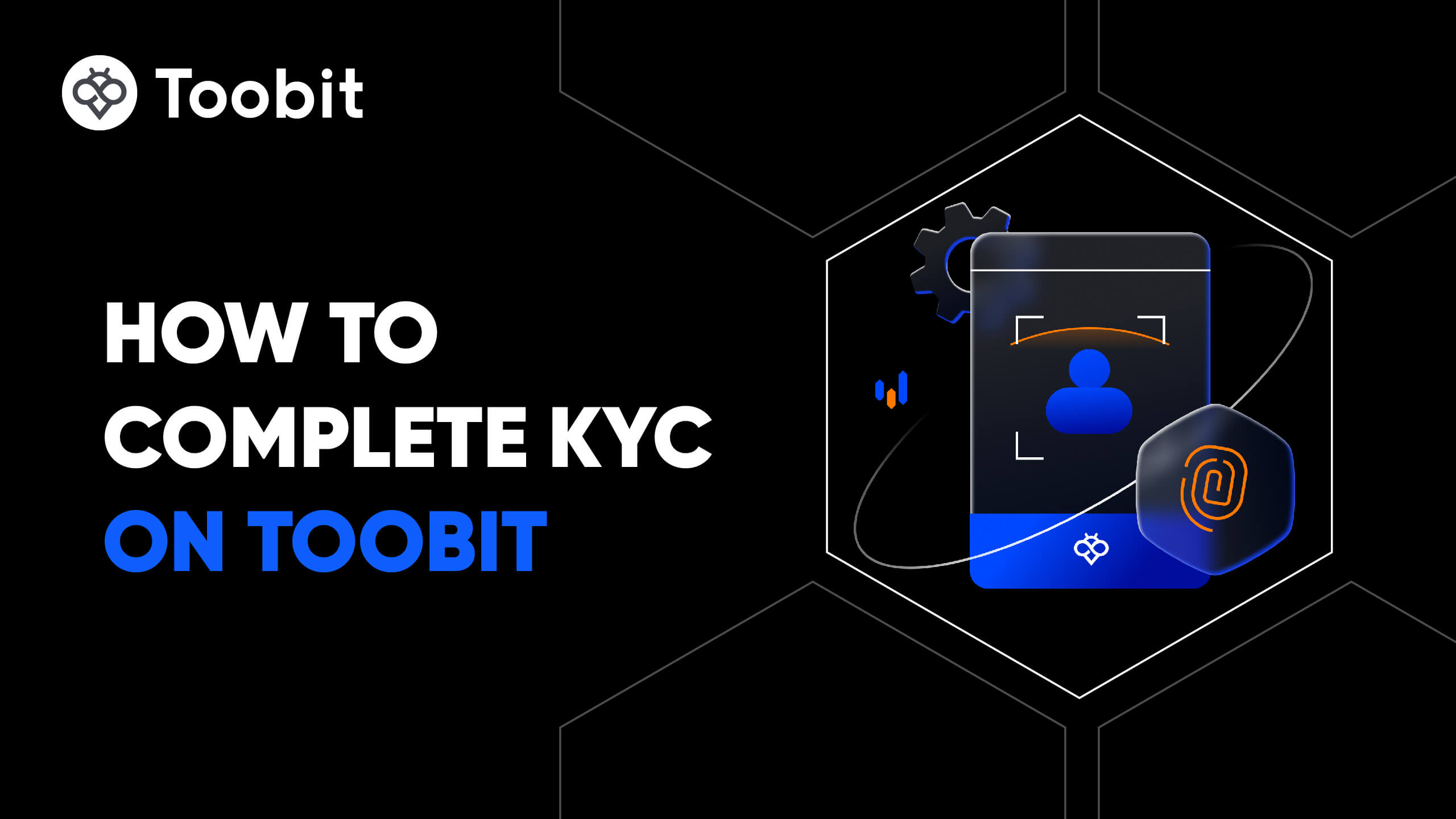Precio de Chainlink
LINKInformación del mercado de Chainlink
Precio en tiempo real de Chainlink hoy en USD
¿Cuánto vale 1 LINK en ?
Sobre Chainlink(LINK)
Historial de precios de Chainlink
¿Por qué el precio de Chainlink fluctúa constantemente?
¿Qué factores afectan el rendimiento de los precios de Chainlink?
Precios globales de Chainlink
Cómo comprar Chainlink
¡Únete a Toobit ahora!
Regístrate en Toobit con tu dirección de correo electrónico/número de teléfono móvil y país de residencia, y crea una contraseña segura para proteger tu cuenta.
Verifica tu identidad
Completa la verificación de identidad proporcionando tus datos personales y una identificación con foto válida.
Agrega un método de pago y compra Chainlink (LINK)
Agrega una tarjeta de crédito/débito o una cuenta bancaria después de verificar tu cuenta de Toobit. Utiliza múltiples opciones de pago para comprar Chainlink en Toobit.
Opera futuros perpetuos de LINK
Después de registrarte en Toobit y comprar USDT o tokens LINK, puedes comenzar a hacer trading de derivados, incluidos Futuros LINK y trading con margen para aumentar tus ingresos.
Únete a Copiar de LINK con traders líderes
Después de registrarte en Toobit y comprar con éxito USDT o tokens LINK, también puedes comenzar el comercio de copias siguiendo a los Traders Líderes.
¿Dónde puedo comprar Chainlink?
Compra criptomonedas en la app de Toobit
Regístrate en minutos para comprar criptomonedas con tarjeta de crédito o transferencia bancaria.
Opera en Toobit
Deposita tus criptomonedas en Toobit y disfruta de alta liquidez y bajas comisiones de trading.
Sección de video — verificación rápida, operaciones rápidas

Cómo completar la verificación en Toobit y protegerte contra el fraude
- 1.Inicia sesión en tu cuenta de Toobit.
- 2.Si eres nuevo en Toobit, mira nuestro tutorial sobre cómo crear una cuenta.
- 3.Haz clic en el ícono de perfil en la esquina superior derecha de la barra de navegación y luego pulsa en la página de Identificación.
Preguntas Frecuentes Sobre Chainlink (LINK)
¿Para qué se utiliza el token LINK?
El token LINK es un token de utilidad ERC-677 que impulsa la red Chainlink.Sus usos principales son:- Pago a operadores de nodos: Los desarrolladores de contratos inteligentes y los usuarios empresariales utilizan LINK para pagar a los nodos oráculo descentralizados por sus servicios, como la entrega de Feeds de Datos en tiempo real, Función Aleatoria Verificable (VRF) y, de manera crítica, asegurar mensajes entre cadenas a través de CCIP.- Staking y seguridad: Los operadores de nodos y los miembros de la comunidad apuestan LINK como garantía para asegurar el rendimiento confiable y honesto de los servicios de oráculo. Si los operadores no cumplen con los estándares de rendimiento o actúan de manera maliciosa, su LINK apostado puede ser reducido (penalizado), proporcionando una fuerte garantía de seguridad criptoeconómica.¿Cuál es la utilidad principal y la tokenómica de la criptomoneda $LINK?
El token $LINK es el activo nativo fundamental para el modelo "Economía de Chainlink 2.0". Su utilidad va más allá del pago básico para formar una capa de seguridad criptoeconómica:- Pago por servicios: Es el token requerido para pagar todas las tarifas por los servicios de Chainlink, incluyendo la entrega de datos, automatización y mensajería entre cadenas a través de CCIP.Staking como garantía: LINK es apostado por la comunidad y los operadores de nodos para asegurar la fiabilidad de los servicios de oráculo descentralizados, recompensando la participación honesta mientras se penaliza el mal rendimiento mediante la reducción.- Sostenibilidad a largo plazo: Los ingresos de la red generados por la adopción empresarial y el uso creciente de servicios como CCIP se canalizan cada vez más para fortalecer la Reserva de Chainlink, lo que aumenta estratégicamente la utilidad y sostenibilidad a largo plazo del token.¿Qué es la Prueba de Reserva (PoR) de Chainlink y cómo protege a los usuarios?
La Prueba de Reserva (PoR) de Chainlink es un servicio descentralizado crítico que proporciona verificación automatizada y en tiempo real del colateral que respalda los activos en cadena.Este servicio es esencial para:- Verificación de colateral: Monitorea continuamente las reservas fuera de cadena (por ejemplo, reservas fiduciarias que respaldan stablecoins) o reservas en cadena (por ejemplo, activos mantenidos en un contrato inteligente de custodia) para asegurar que siempre coincidan con los activos tokenizados en circulación.- Protección del usuario: Al proporcionar evidencia transparente e inmutable de que los tokens en cadena están completamente respaldados, PoR protege a los usuarios del riesgo de contraparte, posibles esquemas de reserva fraccionaria e insolvencia, manteniendo la integridad de las stablecoins e iniciativas de tokenización de Activos del Mundo Real (RWA).¿Cómo previene Chainlink la manipulación de datos o los ataques Sybil?
Chainlink asegura la integridad de sus datos mediante la aplicación de descentralización y verificación en múltiples capas críticas:- Operadores de nodos descentralizados: Los datos son obtenidos y validados por numerosos operadores de nodos independientes y con reputación verificada, eliminando la dependencia de una sola entidad central.- Múltiples fuentes de datos: Cada feed de precios o punto de datos se agrega a partir de un gran número de fuentes de datos de alta calidad y reputación para prevenir la manipulación a nivel de fuente.- Reputación y staking: Un sistema de reputación en cadena rastrea constantemente el rendimiento y la precisión de cada operador. Esto se refuerza con el mecanismo de staking de LINK, donde el mal rendimiento se penaliza mediante la reducción, haciendo que sea criptográficamente y económicamente inviable para cualquier entidad única manipular el feed de datos agregado.¿Es Chainlink (LINK) una buena inversión?
Esto no es un consejo financiero. Chainlink (LINK) se considera generalmente un proyecto de infraestructura fundamental en el espacio cripto, a menudo referido como la "tubería" que conecta todas las blockchains con el mundo real. Su potencial de inversión está directamente ligado al crecimiento y éxito general del movimiento Web3, DeFi y de tokenización de Activos del Mundo Real (RWA) institucional. Como cualquier criptomoneda, es un activo especulativo sujeto a alta volatilidad. Es esencial realizar una investigación exhaustiva (DYOR) sobre sus últimos desarrollos, particularmente la adopción de CCIP por parte de instituciones financieras importantes, y nunca invertir más de lo que puedes permitirte perder.¿Cuándo es un buen momento para comprar LINK?
Intentar cronometrar perfectamente el mercado para comprar LINK en su punto más bajo es extremadamente difícil y muy arriesgado. En lugar de buscar un "buen momento" elusivo, los inversores deben centrarse en un enfoque estratégico y disciplinado:- Convicción a largo plazo: El mejor momento es después de haber completado tu propia investigación, comprender completamente el papel esencial de Chainlink como una red de oráculos descentralizada y capa de interoperabilidad (CCIP), y creer en su potencial a largo plazo para capturar valor de la adopción institucional.- Promedio de costo en dólares (DCA): Esta es la estrategia más recomendada. Implica invertir una cantidad fija de dólares en LINK a intervalos regulares (por ejemplo, semanal o mensualmente), independientemente del precio actual. Esto promedia tu costo de compra a lo largo del tiempo y minimiza el estrés y el riesgo asociados con el cronometraje del mercado.- Preparación financiera: Siempre asegúrate de estar preparado financiera y psicológicamente, lo que significa que el capital de inversión es excedente y estás completamente preparado para soportar la volatilidad extrema.¿Cuál será el precio de LINK en 2030?
Es imposible e irresponsable proporcionar una predicción exacta para el precio de LINK en 2030, ya que los precios futuros son altamente impredecibles. Sin embargo, para formar tu propia perspectiva informada a largo plazo, debes monitorear los siguientes impulsores clave entre ahora y 2030:- Adopción de CCIP: Este es el mayor impulsor potencial de crecimiento de Chainlink. Observa la adopción continua y a gran escala del Protocolo de Interoperabilidad entre Cadenas (CCIP) por parte de los principales bancos globales, instituciones financieras tradicionales y redes de pago (basándose en relaciones existentes con entidades como Swift y UBS).- Tokenización de Activos del Mundo Real (RWA): Monitorea el crecimiento del mercado de activos tokenizados. Si billones de dólares en activos del mundo real (acciones, bonos, propiedades) se llevan a la cadena, Chainlink será la infraestructura esencial (a través de Feeds de Datos y PoR) que los verifica y asegura.- Ingresos de la red y staking: Busca el crecimiento constante de las tarifas pagadas por los servicios de Chainlink y la expansión del pool de staking, ya que estas métricas reflejan directamente la utilidad y seguridad criptoeconómica del token LINK.¿Cómo funciona el mecanismo de staking de Chainlink?
El Staking de Chainlink permite tanto a los operadores de nodos profesionales como a los miembros de la comunidad bloquear sus tokens LINK para mejorar la seguridad y el rendimiento de la red. Los stakers ganan recompensas nativas de LINK por asegurar los servicios de oráculo.- Seguridad e incentivos: El sistema de staking está diseñado para proporcionar una garantía criptoeconómica. Los stakers se comprometen financieramente con la salud de la red, y su participación sirve como una fianza que puede ser reducida si el servicio de oráculo que están asegurando falla o actúa deshonestamente.- Mecanismo: El staking sigue reglas específicas (por ejemplo, las mecánicas V0.2/V0.3 vigentes a partir de 2025), que a menudo implican un período inicial de aumento antes de que se obtengan recompensas completas y un período de enfriamiento para el des-staking. Esta estructura alinea los incentivos de los participantes con la seguridad y fiabilidad a largo plazo de la red Chainlink.¿Qué son los Servicios de Seguridad de ChainLink?
Gracias a los protocolos que hemos descrito en la sección anterior, ChainLink propone asegurar la disponibilidad y corrección frente a hasta f oráculos defectuosos. Además, el hardware de confianza, como se discute en la Sección 6, se está considerando activamente como un enfoque seguro para protegerse contra oráculos corruptos que proporcionan respuestas incorrectas. Sin embargo, el hardware de confianza puede no proporcionar protección definitiva por tres razones. Primero, no se implementará en las versiones iniciales de la red ChainLink. Segundo, algunos usuarios pueden no confiar en el hardware de confianza (ver Apéndice B para una discusión). Finalmente, el hardware de confianza no puede proteger contra el tiempo de inactividad de los nodos, solo contra el mal comportamiento de los nodos. Por lo tanto, los usuarios desearán asegurarse de que puedan elegir los oráculos más confiables y minimizar la probabilidad de que USER-SC dependa de > f oráculos defectuosos. Con este fin, proponemos el uso de cuatro servicios de seguridad clave: un Sistema de Validación, un Sistema de Reputación, un Servicio de Certificación y un Servicio de Actualización de Contratos. Todos estos servicios pueden ser inicialmente gestionados por una empresa o grupo interesado en lanzar la red ChainLink, pero están diseñados para operar estrictamente de acuerdo con la filosofía de diseño descentralizado de ChainLink. Los servicios de seguridad propuestos por ChainLink no pueden bloquear la participación de nodos de oráculo ni alterar las respuestas de los oráculos. Los primeros tres servicios solo proporcionan calificaciones o orientación a los usuarios, mientras que el Servicio de Actualización de Contratos es completamente opcional para los usuarios. Además, estos servicios están diseñados para apoyar a proveedores independientes, cuya participación debe ser fomentada para que los usuarios eventualmente tengan múltiples servicios de seguridad entre los cuales elegir.¿Cuál es la Estrategia Técnica a Largo Plazo de ChainLink?
La estrategia técnica a largo plazo propuesta para ChainLink incluye tres direcciones clave: confidencialidad del oráculo, cambios en la infraestructura y computación fuera de la cadena.¿Qué papel juega el token LINK dentro del ecosistema de Chainlink?
El token LINK, que forma parte del ecosistema de Chainlink, cumple varias funciones. Principalmente, el token LINK se utiliza como una forma de recompensa no monetaria por servicios en la red. Los operadores de nodos de Chainlink que proporcionan datos e información a contratos inteligentes en la blockchain desde fuentes externas reciben tokens LINK a cambio de su contribución. Los operadores de nodos determinan las recompensas no monetarias por sus servicios basándose en las condiciones del mercado y la demanda de datos. Los operadores de nodos también utilizan tokens LINK dentro de la red como una forma de compromiso con la misma. Al emparejar nodos con solicitudes de datos, se considera la cantidad de LINK que un nodo proporciona. Las solicitudes pueden ser cumplidas por nodos que proporcionan más LINK. Este sistema penaliza a los nodos que brindan un mal servicio reduciendo la cantidad de LINK que reciben. El token LINK está diseñado para asegurar la integridad y confiabilidad del ecosistema de Chainlink. Chainlink es operado por una red descentralizada de nodos oráculo. Estos nodos recopilan datos de fuentes externas y los validan antes de transmitirlos a los contratos inteligentes. Los contratos inteligentes pueden interactuar con datos fuera de su blockchain nativa utilizando este proceso. Chainlink es descentralizado, lo que hace que los datos sean más seguros y confiables. La red utiliza un sistema de staking, que permite a los operadores de nodos bloquear sus Tokens LINK como garantía. La garantía puede reducirse cuando un nodo proporciona datos incorrectos. Esto fomenta la honestidad y precisión. Asegúrese de que los nodos en redes oráculo descentralizadas tengan fuertes incentivos para actuar de manera confiable y precisa, incluso cuando se enfrenten a oponentes bien financiados.¿Qué factores suelen influir en el precio de Chainlink (LINK)?
Hay varios factores que pueden influir en el precio de LINK, incluyendo la demanda y oferta del mercado, el sentimiento general del mercado hacia las criptomonedas, desarrollos y actualizaciones dentro del ecosistema de Chainlink, asociaciones y colaboraciones con otros proyectos, desarrollos regulatorios y factores económicos más amplios.¿Cómo ha evolucionado el precio de Chainlink (LINK) a lo largo del tiempo y cuáles son algunos de los hitos clave de precio que ha alcanzado?
Chainlink (LINK) ha experimentado un crecimiento de precio significativo desde su lanzamiento en 2017. El precio de LINK ha pasado por varias fases de crecimiento y consolidación, con hitos clave que incluyen su cotización inicial en intercambios, alcanzando un máximo histórico de más de $50 en mayo de 2021, y correcciones y recuperaciones posteriores. Es importante señalar que los precios de las criptomonedas son altamente volátiles y pueden ser influenciados por varios factores del mercado.¿Cuáles son algunas herramientas e indicadores de análisis técnico comunes que los traders utilizan para analizar los movimientos de precios de Chainlink (LINK)?
Los traders y analistas a menudo utilizan herramientas e indicadores de análisis técnico como medias móviles, índice de fuerza relativa (RSI), niveles de retroceso de Fibonacci y Bandas de Bollinger para analizar los movimientos de precios de Chainlink (LINK) y tomar decisiones de trading informadas. Estas herramientas pueden ayudar a identificar posibles reversiones de tendencia, niveles de soporte y resistencia, y condiciones de sobrecompra o sobreventa en el mercado.¿Cómo afecta el sentimiento actual del mercado y la perspectiva general de la industria de las criptomonedas al precio de Chainlink (LINK)?
El sentimiento del mercado y la perspectiva general de la industria de las criptomonedas pueden tener un impacto significativo en el precio de LINK. Un sentimiento positivo hacia las criptomonedas en general, así como desarrollos y noticias específicamente relacionados con Chainlink, pueden contribuir a la apreciación del precio. Por el contrario, un sentimiento negativo o medidas regulatorias en la industria pueden llevar a caídas de precio. Es importante que los inversores se mantengan informados sobre las tendencias del mercado y los desarrollos para tomar decisiones bien informadas respecto a sus tenencias de Chainlink.¿Qué tan precisas son las predicciones de precios de Chainlink hechas por expertos y analistas?
Puede ser difícil predecir con precisión el precio de cualquier criptomoneda, incluida Chainlink, debido a la naturaleza volátil del mercado. Aunque los expertos y analistas pueden utilizar análisis técnico, análisis fundamental y tendencias del mercado para hacer predicciones, siempre hay un nivel de incertidumbre involucrado.¿Cuáles son algunos indicadores clave a considerar al hacer predicciones de precio de Chainlink?
Algunos indicadores clave a considerar al hacer predicciones de precio de Chainlink incluyen el volumen de negociación, la capitalización de mercado, las actualizaciones de desarrollo, las asociaciones, las tasas de adopción y el sentimiento general hacia la criptomoneda.¿Cuáles son algunos desafíos potenciales que podrían afectar las predicciones de precio de Chainlink?
Los desafíos potenciales que podrían afectar las predicciones de precio de Chainlink incluyen la manipulación del mercado, las represiones regulatorias, la competencia de otros proyectos, las brechas de seguridad y los contratiempos tecnológicos. Es importante considerar estos factores al hacer predicciones de precios y mantenerse cauteloso ante los posibles riesgos en el mercado de criptomonedas.



